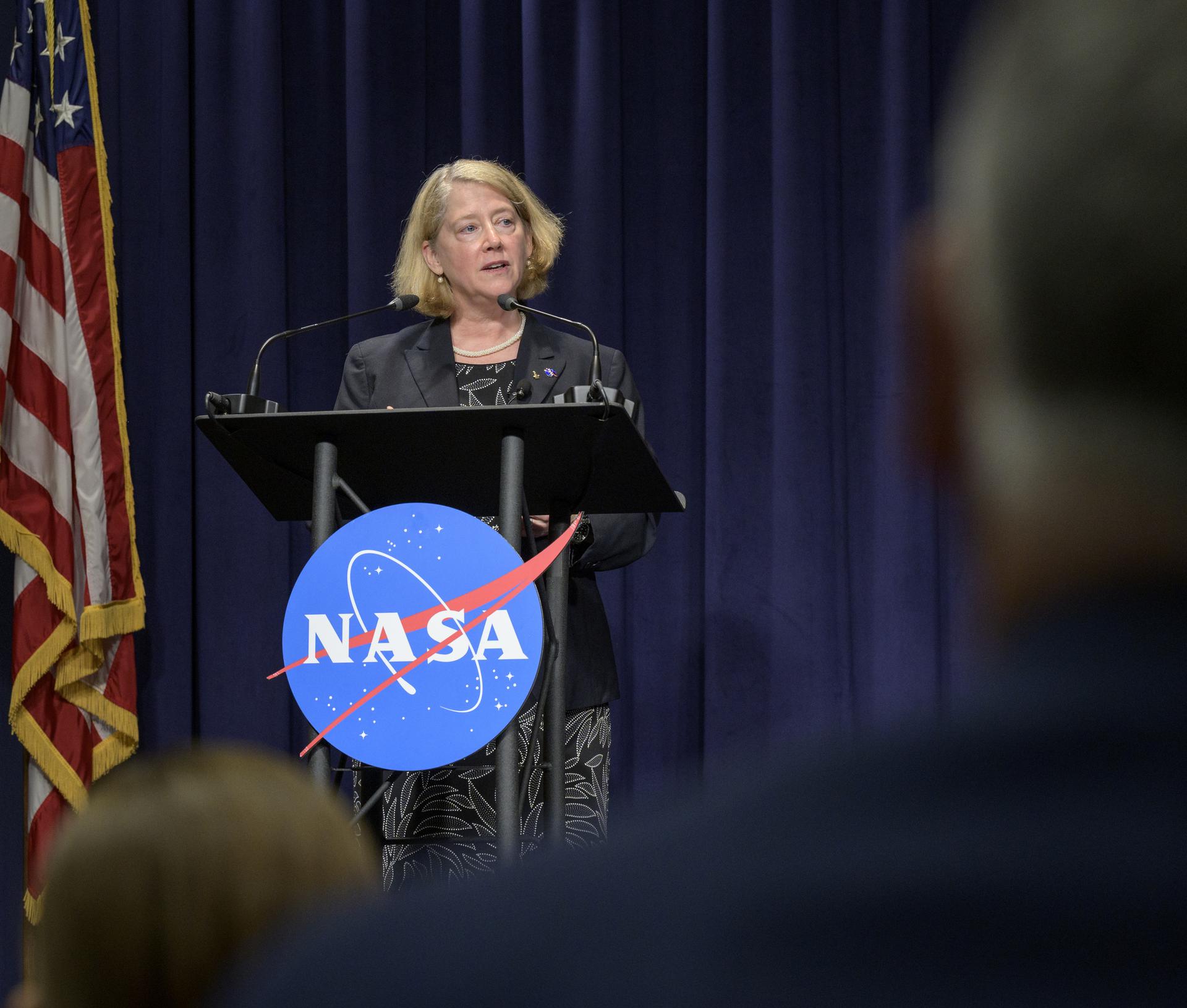Annual Science Conference
to Feature NASA Leadership, Research
DEC 08, 2023 RELEASE M23-147
NASA Deputy Administrator Pam Melroy will discuss the agency’s Artemis program during her keynote remarks at the upcoming American Geophysical Union (AGU) 2023 annual
meeting. Credits: NASA
Annual Science Conference to Feature NASA Leadership, Research
NASA Deputy Administrator Pam Melroy will discuss the agency’s Artemis program during her keynote remarks in mid-December at the upcoming American Geophysical Union (AGU) 2023 annual
meeting in San Francisco. Through Artemis, NASA will establish a long-term presence at the Moon for exploration and scientific discovery to understand more about the universe and our place in it as well as to prepare for a human mission to Mars.
Researchers from across the agency also will present findings throughout the week on Earth sciences, planetary science, and heliophysics beginning on Monday, Dec. 11. Melroy will help
close out the conference with her remarks on Friday, Dec. 15.
New NASA science results from Mars, ice dynamics in Antarctica, and how to determine habitable zones for exoplanets, are among other topics. Throughout the conference, in-depth roundtable
chats with NASA scientists discussing air pollution monitoring, NASA’s upcoming PACE (Plankton, Aerosol, Cloud, ocean Ecosystem) mission, and the 2024 total eclipse in North America, also are set to take place.
Several AGU
media events will feature NASA scientists.
News Briefings, Events with NASA Participation (All Times EST)
Monday, Dec. 11
Tuesday, Dec. 12
Wednesday, Dec. 13
Friday, Dec. 15
Media can register on
AGU’s website to participate in live briefings online. All briefings will be posted afterward on AGU’s YouTube channel.
For those attending the meeting, 50 hyperwall talks at the NASA Exhibit
will highlight the current state of NASA Earth, planetary, and heliophysics science. In addition, 40 data demonstrations will highlight how to use NASA’s
free and openly available data, NASA’s sea level rise portal, and HelioViewer’s imagery of our Sun.
For more information on NASA Earth and climate science, visit:
-end- |

